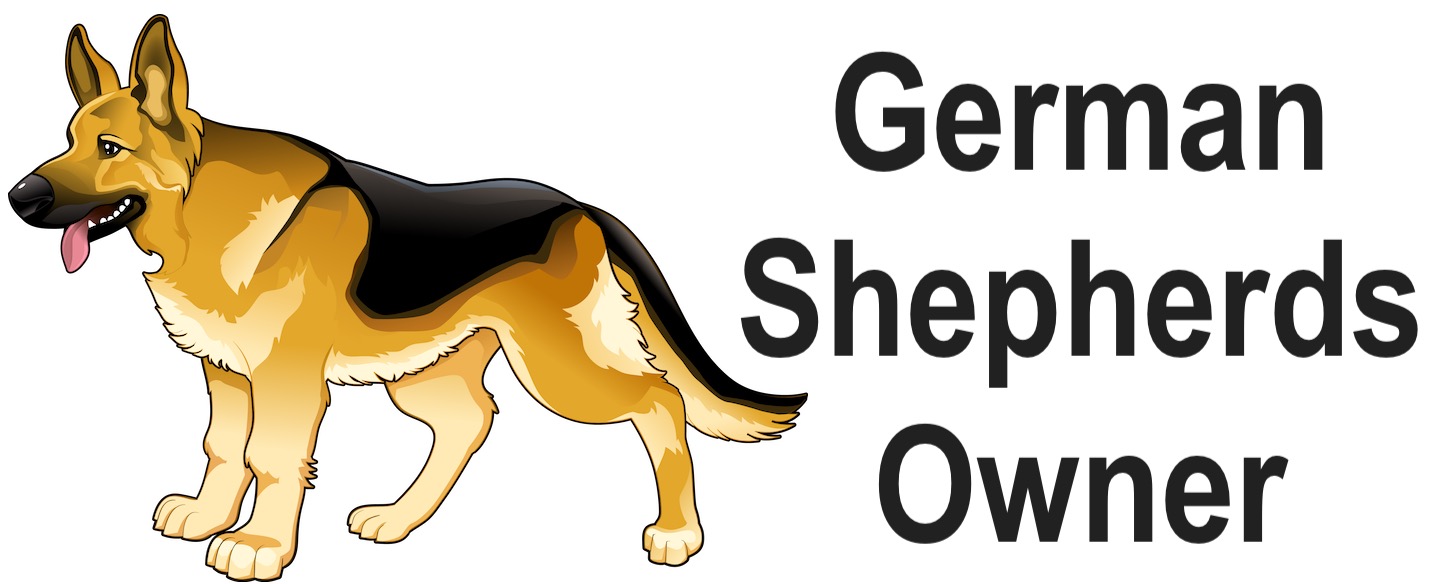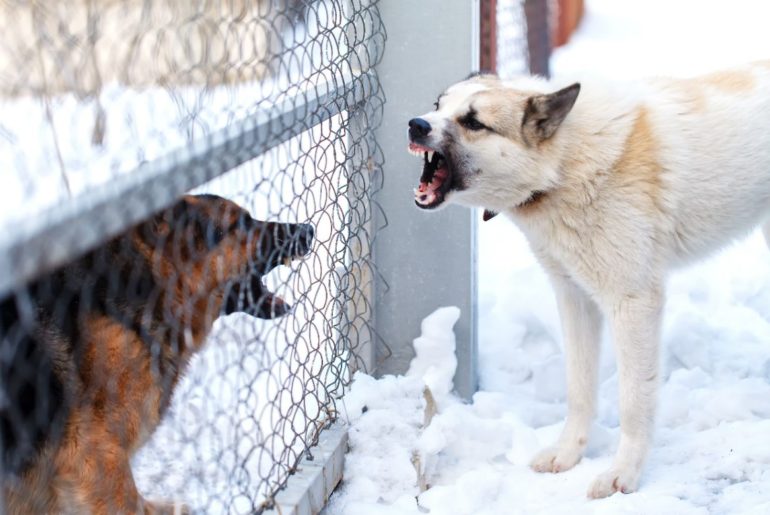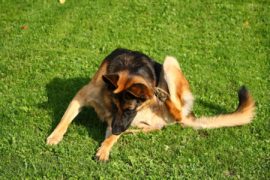If your German Shepherd barks at other dogs then you’re probably wondering why and what you can do about it.
This post will show you a number of reasons why your German Shepherd barks at other dogs and a number of things that you can do about it.
So, why does my German Shepherd bark at other dogs? Possible reasons are that it sees them as a threat, it is being protective, it is being dominating or that it is overly enthusiastic play.
There are actually a number of reasons why your German Shepherd might bark at other dogs and there are a number of things that you can do about it.
Why your German Shepherd barks at other dogs
Below, I will mention a number of reasons why your German Shepherd might tend to bark at other dogs.
Protection
German Shepherds are known for being very protective dogs and they are often used as guard dogs because of that quality. The reason why your German Shepherd barks at other dogs could be that it is being protective.
This would be more likely to be the reason if it will also bark at people that it does not know, at times, as well.
Fear/anxiety
The reason why your German Shepherd barks at other dogs could be that it is fearful or anxious around them. This could be because it was mistreated, in the past, by another dog.
If this is the case, then it would be more likely that it would show signs of being frightened or submissive around them by doing things such as hiding its tail or hiding behind you.
Related post: Why is my German Shepherd so anxious?
A lack of exposure to other dogs
German Shepherds will, naturally, explore its environment a lot as a puppy and it is when it will learn about the world. Not getting a lot of exposure to other dogs when it was younger could be why it barks at other dogs. This is because it might see them as a threat.
In this case, desensitization training would likely work well which is discussed below.
Dominance
It could also be the case that your German Shepherd is overly dominating.
If this is the case then it would be likely that your German Shepherd is trying to assert its dominance over the other dogs.
Signs that this could be the reason would include your German Shepherd displaying other dominant behaviors such as trying to position itself in higher positions than you or being unresponsive to your command (although that could also be a lack of training).
In this case, it would be helpful to train it as much as you can starting with the basics such as to sit or stay.
Overly enthusiastic play
It could also be that your German Shepherd gets overly excited around other dogs.
When this happens it can cause German Shepherds to display aggressive behavior like barking. Regardless this is still something that you should try to stop. I will mention ways that you can do so in the section below.
How to get your German Shepherd to stop barking at other dogs
There are a number of things that you can do to get your German Shepherd to stop barking at other dogs that I will mention below.
You can look at the book Training Your German Shepherd on Amazon to get more tips about how you can train your GSD.
Teach it to associate other dogs with rewards
One option you have is to train your German Shepherd to stop barking at other dogs by using positive reinforcement training. This is where you teach your German Shepherd that it will get things that it wants when other dogs are around and it does not bark. This will help to get your German Shepherd to have positive feelings towards other dogs.
One way to do this is to try the “open bar” technique where you give your German Shepherd positive attention and a treat when you see other dogs on a walk. The positive attention and treat should stop when the other dog goes away or when your German Shepherd starts barking.
The treat should also be a special treat that you only give to your German Shepherd when other dogs are around.
You can also try “shaping” where you reward your dog for making small steps towards being well behaved.
You would start by rewarding it for not barking when it sees other dogs and then you would gradually build up to rewarding it for playing with other dogs without barking.
When you’re doing this you will want to reward your German Shepherd for being well behaved before it has a chance to bark so avoid making large jumps in what you ask of it.
For example, if you start out by rewarding it for being well behaved at a distance then don’t close the gap between you and the other dog too quickly.
Instead, do so gradually so that your German Shepherd can make small steps without being poorly behaved or barking. This can be difficult to do if you just have one German Shepherd so you could get a friend with a dog to help you out.
You can watch the video below for more advice
Desensitize it to other dogs
One option is to try desensitization training where other dogs are presented at a sufficiently large distance so that it doesn’t have a chance to give a negative reaction and to start barking.
You’ll then reward it for not barking and then gradually lower the distance. When it does give a negative reaction or bark increase the distance until it stops and then
Making sure that your German Shepherd gets used to being around other dogs would be a particularly important thing to do if it is a puppy.
Train it to listen to your command
It would also help to train your German Shepherd to listen to your command when you tell it what to do. Doing this will make it much easier to control your German Shepherd when it starts misbehaving or barking.
I have written about how to get your German Shepherd to stay in the past here. I have also written how to teach your German Shepherd “down” in the past here.
Once you have taught your German Shepherd to do these things you’ll want to tell it to “stay” or go “down” before it gets the chance to start barking.
This is why it’s important to stay calm in these situations so that you can monitor your German Shepherd for signs that it is about to start barking. Once you’ve done that give it the chance to calm down and then reward it with a special treat for doing so.
The nice thing about this option is that you don’t need to get the help of a friend that has a dog to do it. Instead, you can do it whenever you see other dogs when you’re walking it.
Try a growl class
There are growl classes available in some areas that are specifically designed so that people can train their dogs to be well behaved around other dogs. This is something that you might want to consider taking your German Shepherd to.
Take it to a dog behaviorist
If you cannot get your German Shepherd to stop barking at other dogs or it seems to become aggressive around other dogs then it would help if you can get expert advice from a dog behaviorist in your area.
Things to consider
When trying to understand why your German Shepherd barks at other dogs and what you can do about it there are a number of things that it would help to consider.
Be consistent
When you are training your German Shepherd not to bark at other dogs it would help to be consistent with the training. It will be difficult to get your German Shepherd to stop barking at other dogs completely in one training session.
However, if you stick with it over the course of weeks and months then you will be able to see much better results.
When it started
It would also help to consider when your German Shepherd first started to bark at other dogs.
If it has always seemed to do it then it would be more likely that it didn’t get to interact with other dogs enough as a puppy.
If it started recently then it would make it more likely that something such as being mistreated by another dog or being territorial is causing it.
Best German Shepherd Training Program
Our favorite: The Dunbar Academy Training Program. If you want a happy and obedient German Shepherd, this is one of the best online dog training programs available right now. You can get the first month free using This link





